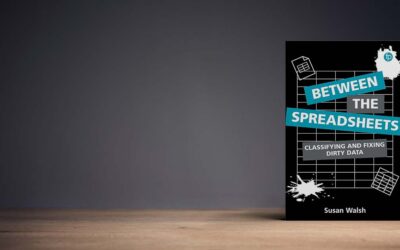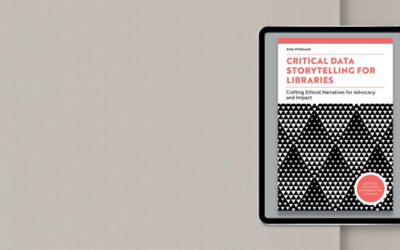Interview with the Author: Myka Kennedy Stephens on Integrated Library Planning
Lauren Hays
Myka Kennedy Stephens recently wrote Integrated Library Planning: A New Model for Strategic and Dynamic Planning, Management, and Assessment, published by ALA this year. My interview with her is below.
Please introduce yourself to our readers.
I am the Seminary Librarian and Associate Professor of Theological Bibliography at Lancaster Theological Seminary in Lancaster, PA. I’ve been directing the Lancaster Theological Seminary Library since May 2014. Over the past nine years, I’ve seen a lot of change in the library, in the theological school, and in the communities the library serves. Integrated Library Planning developed out of this incredibly turbulent environment. I am also the Founder and CEO of Fosgail LLC, an executive coaching and library consulting firm.
Briefly summarize Integrated Library Planning.
This book is an introduction to a new model of planning that I developed at the Lancaster Theological Seminary Library. I named the model Integrated Library Planning because I was inspired by Integrated Business Planning practices. It is an approach to planning that is both strategic and dynamic, operating on an iterative cycle of assessment, planning, acting, and evaluation. It incorporates what librarians and library leaders learn from their patrons and communities as well as what arises in the environments within and around libraries. Keeping the library’s mission, vision, goals, and financial reality in the forefront of an iterative and integrated planning cycle creates space for innovation that allows a library to meaningfully and effectively respond to needs as they emerge instead of waiting until the next three-year strategic plan. This book is a practical guide to developing an integrated plan and implementing a review cycle. It covers everything from the point of discerning whether to try Integrated Library Planning, through the four stages of creating and implementing an integrated plan, to what a library experiences as it lives into and with its integrated plan.
Why did you decide to write this book?
Libraries need to develop a greater capacity for resiliency in order to stay abreast of the numerous technological, social, and environmental changes we’re experiencing. Integrated Library Planning is a model that can help libraries and librarians become more resilient in an environment that is under constant and multiple stresses due to change. Libraries have proven to be adaptable time and again. Resiliency allows libraries and librarians to continue to adapt at a rapid pace in ways that are healthy and sustainable. When I started Integrated Library Planning at Lancaster Theological Seminary Library, I glimpsed only a fraction of the change we’ve encountered in recent years. This mode of planning has anchored me in practices that are flexible and responsive. I hope that my readers may find a similar sense of grounding and purpose in this approach to library planning.
Who is the primary audience for the book?
Librarians who are directors or leaders in their organizations are the ones who will benefit the most from this book. While I developed Integrated Library Planning in a theological library context, I believe this model and the book hold broad appeal for many types of libraries. The case studies included throughout the book feature fictitious college and university libraries, public libraries, and special libraries. It is written as a guide for those who would be leading an integrated library planning process in their organization.
What are two specific things you hope all readers learn?
First, I hope readers discover that infinitely rolling planning horizons open possibilities for libraries. Fixed-length planning horizons, as used in a traditional strategic plan, are frustratingly static. By pairing a rolling planning horizon with practices that encourage assessment and evaluation, Integrated Library Planning cultivates a dynamic and creative space for ongoing development of goals, strategic outcomes, and action plans that are responsive to fluctuations and shifts. Libraries operating in this way develop capacity to strategically plan and act when moments of opportunity emerge.
Second, I hope to encourage readers to cultivate an attitude of curiosity toward change. Approaching change with curiosity helps lower our natural anxious reaction and places us in a space of wonder. Sitting in wonderment engages our imagination and helps disrupt cycles of negativity, resistance, and fear. While negativity, resistance, and fear never truly disappear in the face of change, curiosity opens space for exploration, discovery, and innovation.
How do you see library planning continuing to evolve?
I hope the field of library planning continues to evolve in ways that further cultivates resiliency in libraries. Integrated Library Planning is an open model in that it can include multiple tools and techniques. In the book, I incorporate Appreciative Inquiry and the Art of Hosting. There is ample room to add more and different approaches and practices. This is just the beginning of a conversation about how libraries can more effectively plan when faced with rapid and unpredictable change.
Is there anything else you would like to share?
I would love to hear from readers who are interested in trying Integrated Library Planning, adapting it for their context, or who use approaches and practices that might be compatible with this model. Dialogue on this topic helps all of us who seek to move our libraries forward in challenging times.
Lauren Hays
Dr. Lauren Hays is an Assistant Professor of Instructional Technology at the University of Central Missouri, and a frequent presenter and interviewer on topics related to libraries and librarianship. Please read Lauren’s other posts relevant to special librarians. Take a look at Lucidea’s powerful integrated library systems, SydneyEnterprise, and GeniePlus, used daily by innovative special librarians in libraries of all types, sizes and budgets.
Never miss another post. Subscribe today!
Similar Posts
Library Instruction: Learning Styles Are Out, Evidence-Based Practices Are In
For instructors and educators of all types, it’s vital to realize that evidence-based practices are more effective than catering to the myth of learning styles.
Interview with Susan Walsh:
Dirty Data, AI, and the 2nd Edition of “Between the Spreadsheets”
Author Susan Walsh discusses the new edition of “Between the Spreadsheets,” sharing insights on fixing dirty data, AI’s impact, and her COAT framework.
Interview with the Author:
Dr. Kate McDowell on Storytelling for Libraries
Dr. Kate McDowell shares how data storytelling helps libraries advocate, counter misinformation, and build trust for future generations.
4 Library Marketing Strategies Every Special Librarian Can Use
Whether you manage a corporate, government, or nonprofit library, knowing how to promote your services is essential for visibility and impact.




Leave a Comment
Comments are reviewed and must adhere to our comments policy.
0 Comments